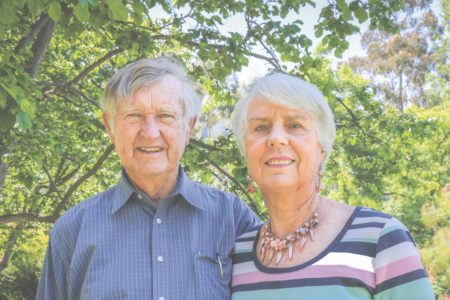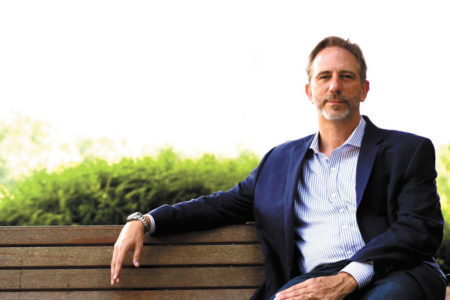Imagine being born into the wrong body. Imagine spending 30 years not knowing who you really are. Only then can you start to understand Sally Goldner’s strength.
By Mikaela Turner
Sally Goldner remembers her bar mitzvah well – which is not to say she remembers it with fondness. It was anything but a happy occasion.
At 13, Sally was a girl trapped in a boy’s body and the thought of celebrating her “coming of age” into manhood terrified her.
The year was 1979 and the term “transgender” hadn’t entered Sally’s lexicon and acronyms such as LGBTQI didn’t even exist.
As such, Sally didn’t know who she was, she only knew whoever she was wasn’t who she wanted to be.
“School was not a happy place for someone life myself,” Sally says.
“Never feeling like you fit in, feeling like there is something wrong with you and not knowing what to do about it.
“My Bar Mitzvah felt like I was being forced to be something I wasn’t.” If school was bad, graduating into the workforce was not much better. Sally became an accountant in an “extremely masculine” corporate sector, and continued to feel displaced.
She says conversation at post-work drinks would centre on cars and sports and other topics she could not identify with and it eventually forced her to quit that world and explore another, more wider, one: earth.
Unfortunately, the experience wasn’t the cleansing one she hoped it would be. With so much time to stop and think, Sally found long-supressed thoughts and emotions regarding her sexuality re-emerged.
She sought the help of a psychiatrist, but this too became problematic.
“She (the psychiatrist) was at a minimum not helpful and to some extent tried aspects of conversion therapy, without consent or explanation,” Sally says.
“She was trying to link it to something which would explain it, rather than accepting it as it is, so that pushed me further down.
“At the time I felt like a walking psychological experiment, rather than a human living and, if it wasn’t for a very helpful friend, I wouldn’t be here.”
Together, Sally and her friend tracked down a psychologist who had a Master’s degree in gender and sexuality. The first meeting had such a profound impact on Sally’s life that she still remembers the exact time and date of the appointment: 10am, 27 April, 1995.
“That appointment will stay with me for as long as I have memory function,” Sally says.
“She listened and told me ‘there is this word called transgender’ and explained it as ‘there are some men who are more feminine than masculine and some who need to be female – the latter is transgender’.
“It was a lightbulb moment, like solving a jigsaw puzzle. Driving home, I remember saying to myself that I had gone such a long way down going against this, I wonder what would happen if I went with it. The next 24 years have been a lot better.”
Sally did not immediately affirm her female gender, however.
For the next two-and-a-half years, she continued to live as a man while occasionally dressing as a woman in public.
When Sally finally did announce herself to the world she had to tell her parents, who took some time adjusting to the news. By the time her mother died last year, however, everything was as it should be. Sally says she remains very close with her father.
Sally has long since returned to the workforce and is now executive director of Transgender Victoria as well as being co-facilitator at Transfamily, a discussion group for family members of people who identify as trans.
“When family members get to talk with others who have gone through it and may now be settled, they realise they’re not alone and what they’re feeling, which might be shock and even denial, is totally OK,” she says.
“Whatever time things take is OK, so long as you can hang in there. It might sound like a no-brainer, but research tells us if you’ve got a supportive family, you’re going to do better. So having parents support each other has only got to be good for trans people.”
Sally’s work in the transgender field was recognised in 2019 when she received the Order of Australia award for service to the LGBTQI community.
Sally said the news was “incredibly awesome”. “It (the award) said, wow, trans people can get these sorts of awards, we’re not this marginalised group in the corner, we’re people, part of Australia,” she said.
If receiving the honour moved Sally, there was more good news to come. Sally’s dad attended the investiture and gave her a special gift – her mother’s jewellery.
Sally will be speaking at Manningham Uniting Church’s Building Bridges Through Story Event on 12 October.



